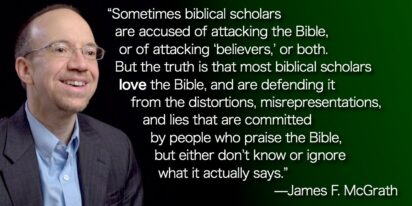Continuing on the study of the teachings on women’s apparel, I recently received the book Wholly Holy: The Vital Role of Visible Devotion.
Chapter five is called Why God Likes Many Skirts. The author tells the story of a man knowing Morse code and it being a code that not all people know. Concerning the young man who knew Morse code he says “Obviously this young man knew something that the others simply did not know. He had paid very close attention to something all the others had missed.” (pg 96) He then goes on to talk about “modestly dressed and attired women of God” that are inquisitively observed by other people. He then says “A Bible-believing, obedient and godly woman is just simply keenly aware of some very certain, precious and spiritual truths that others are simply not aware of.” (pg 97)
In this, he sets the (probable) skirt wearer up as someone who is special and who knows special truths that others do not. By implication, he asserts that women who do not dress “modestly” (which he has not yet defined), do not have whatever secret knowledge he is referring to. We all want to be special and have secret knowledge, so perhaps the reader sits on the edge of his/her seat, wondering what special secret code he/she may become privy to. He says that the more alert woman is tuned into some very valuable instructions that others have blindly tuned out or ignored and that others perceive certain Bible verses as simply unimportant (pg 97). By this, he makes it clear that only those who interpret these Bible verses a certain way understand the secret code, or have paid attention to certain Bible instructions and all others perceive them as unimportant, which is not true.
He goes on talking about most people owning a Bible but not really taking it seriously (pg 98). He talks again about being keenly aware of divine revelations and says “I am confident that you will gain a fresh and even a new understanding and appreciation for some timeless directives…” (pg 99) thus again setting up the reader to receive what the author perceives to be divine revelation. He set up even more groundwork saying children of God are “commissioned to walk a different path than the rest of the world.” He gets the reader agreeing…yes, we are commissioned to walk a different path…yes, we want divine revelation. Like a salesman getting ready to unveil new product, he talks up the product before he lets you know exactly what he is going to unveil.
“This subject applies only to women who ‘profess godliness.’ It only applies to women who claim a devotion to God.” (pg 98) Do you agree? He asks by implication. Do you profess godliness? Do you claim a devotion to God?
Just when you think he is about to unveil the product he has been selling, he lays even more foundation yet. First he gets you to agree that you want to be devoted and then he sells a bit of fear about rejecting the product. He sells severe judgment for immorality and sin. He talks about God’s people erring (pg 100). He talks about the nation being so low into sinfulness and the prophets failing and the detestable condition they had plummeted to (pg 101). He gets the reader to agree, again, that we do see moral decline, we don’t want to be immoral and sinful. He talks about here a little and there a little and says “only sincerely interested people will find and discover truth” (pg 102).
Can you see the set up? All of this has been said without saying what he is about to say. Apparently the product doesn’t sell itself very well. It seems to need a lot of propping up. There are a lot of products out there that people seek out because they want one. Other products are expensive and hard to sell. In that case, the company usually gets a salesman to tell people why they really want and need this product and why it is so much better than the others. Then, the salesman puts in a little fear about passing up a great offer if you don’t buy now. Often, the buyer regrets his purchase after the salesman leaves and he has had time to do a little more research. Sadly, some people who buy the product don’t like to admit that perhaps they spent more on it than they should have. All in all, very good products don’t need long sales pitches.
So, from pages 95-108, it is all groundwork and sales. Only on page 108 does he finally get into what he is actually going to say. He begins to define modesty. The original word is defined as “orderly, well-arranged, decent, modest, a harmonious arrangement or adornment” (pg 109). Apparently, the author finds this to be insufficient as he goes on to define the definition for us. He says “How can we truly decide and define what modest actually is?” (pg 109). He quotes Isaiah 47:2-3 “Uncover thy locks, make bare the leg, uncover the thigh….thy nakedness shall be uncovered, yea thy shame shall be seen.” The author takes liberty to interpret this passage as “according to God, whenever a woman bares her leg and allows her thighs to be uncovered it is at this point that her shame is being demonstrated” (pg 110). Why doesn’t the author take this to mean a woman shouldn’t uncover her hair or bare her leg, including her ankle? He offers no explanation, he simply says “We’ve covered the word modest” (pg 111).
He goes on concerning the word apparel, “katasole,” and says “it’s the only time it appears in the entire New Testament” (pg 111). “Kata means down” and “the second part of the word describes a long garment, covering or wrapping”….”it specifically describes a very exact and particular type of clothing. It describes a downward hanging, loose garment (a modest skirt or a dress etc.)”….”a modest, decent, downward, hanging, long (not short) appropriate dress or skirt” (pg 112). By his own mouth, he says the word katasole is in the entire New Testament one whole time. Whenever Oneness Pentecostal people are talking about Jesus name baptism they quote 2 Cor 13:1 “In the mouth of two or three witnesses shall every word be established” and say a doctrine shouldn’t be established upon one verse. How soon this is forgotten when talking about other subjects.
Deut 22:5 is mentioned (pg 113). The author talks about abominations through page 117 and about the clothing of soldiers and warriors through page 120. He talks about Western culture and that women have historically worn skirts. He says that women dressed the way they did because of the passages he referenced (pg 120). He argues that the culture has changed in the past few decades.
Again, he gets the reader’s agreement with these statements that are factually true and then, rather than asking the reader if they agree with his assessments, definitions and applications of scriptural principles as one Christian to another, he reiterates why his viewpoint is correct. He talks about the “abundance of information that has been presented in this chapter” (pg 121) forgetting to remind the reader that he provided us with Deut 22:5, which doesn’t mention anything about skirts on women, one mention of the word katasole in the New Testament and a verse from the Old Testament on modesty in which he doesn’t explain why he doesn’t believe women should keep their hair and ankles covered. The rest of what he provided is simple support for views and have nothing specifically to do with dress.
He then explains away, not his lack of resources, but that some will say he is being “too technical” (pg 122). He justifies his being “technical” by saying the Bible is like a razor.
In the end he says if you disagree with him, that apparently you don’t believe the Bible is inspired like he does. “If …all of this is too much attention to meaningless technicalities then here’s what may be a major difference between me and you: I believe that every word of the Bible is inspired by God. You perhaps don’t. And I also believe that every word of the Bible was accurately and successfully conveyed by God intently for our admonition and instruction today.” He quotes from the Bible to support his belief that you should interpret the Bible the way he does (pg 123).
He closes out by saying we should live to please “God and His Word” regardless of what the rest of the world does. So, after the long sales pitch, foundation and final unveiling of one actual scripture verse to support his belief that skirts are the only appropriate women’s apparel, if you don’t buy the product, he leaves you to question your Christianity, your beliefs and whether you are actually devoted to God. I’d say let the salesman get out the door and get the pressure off before you buy and see if there isn’t another better product, one that sells itself and doesn’t need long sales pitches and insults hurled at you to get you to buy it. If you still decide you want the product, it will still be there after you have had a chance to really look for yourself.
I have provided photos of pages 111-117. I haven’t provided them all because it is lengthy. Page 111, page 112, page 113, page 114, page 115, page 116, page 117.
(Written for the Facebook group Breaking Out.)
Getting Out the Old Books: The Literal Word by M.D. Treece
Getting Out the Old Books: Guardians of His Glory by Gary & Linda Reed
Getting Out the Old Books: David F. Gray
Getting Out the Old Books: Joy Haney
Getting Out The Old Books: Larry L. Booker
Getting Out the Old Books: Power Before the Throne
Getting Out the Newer Books: Wholly Holy: The Vital Role of Visible Devotion
Search For Truth On Holiness
********
Shop at our Amazon store! As an Amazon Influencer, this website earns from qualifying purchases.





